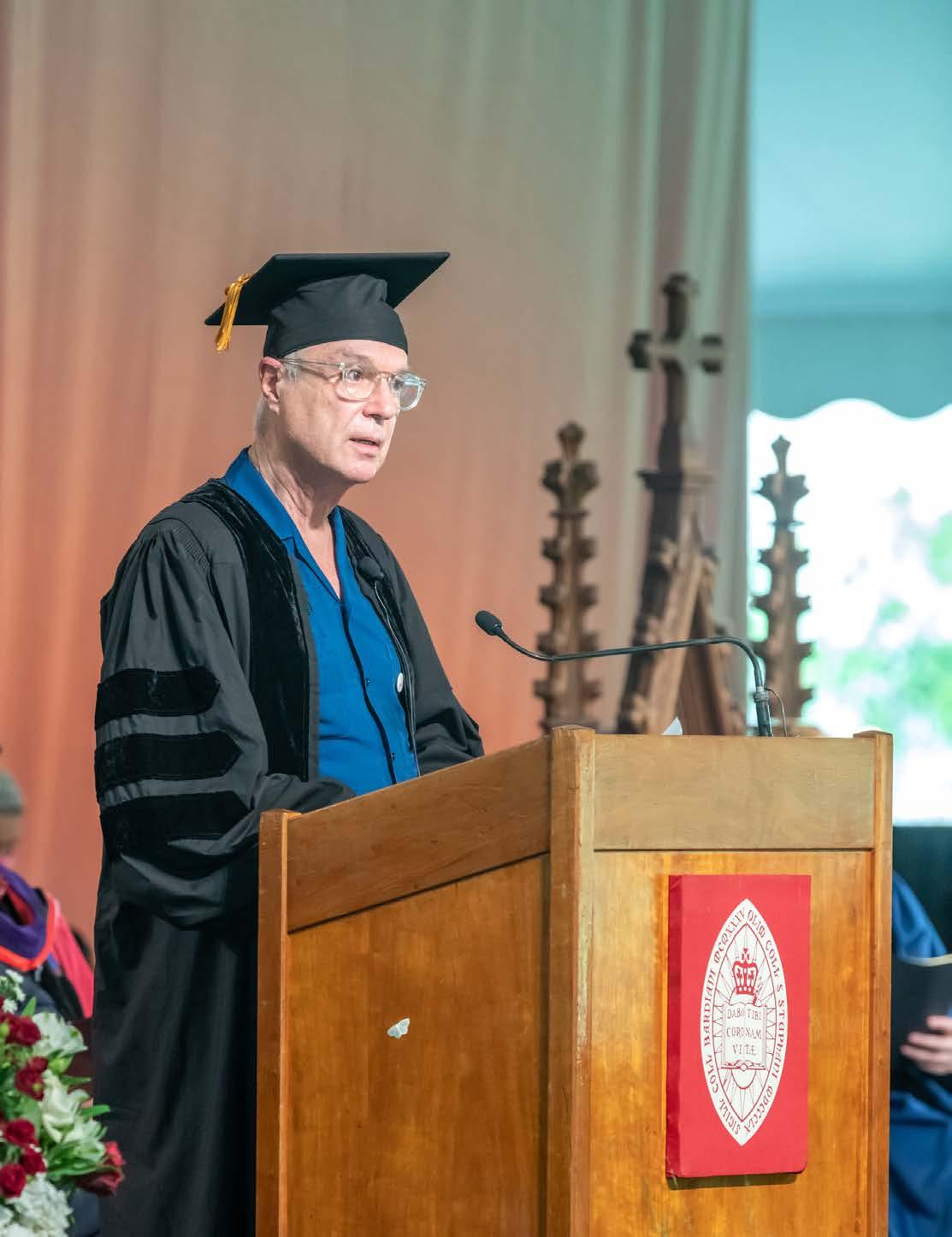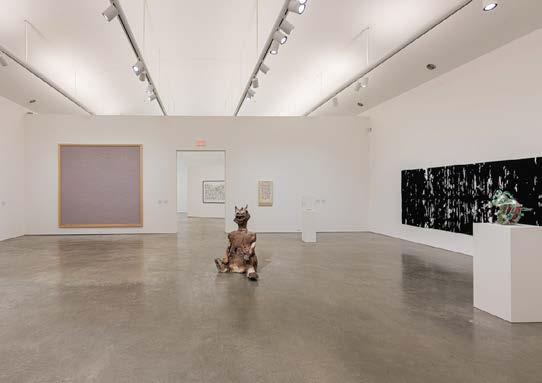
4 minute read
A Cello Virtuoso Who Was Born to Teach
Luis García-Renart, 1936–2020
Luis García-Renart, professor emeritus and visiting professor of music, died June 6. He was 84 and had taught at Bard continuously since 1962. Born to a proud Catalan and Spanish family that was fiercely loyal to the Republic of Spain and at its fall took exile in Mexico—the nation that uniquely opened its doors to refugees from the Republic of Spain in the 1930s—García-Renart remained for his entire life a staunch Mexican patriot.
García-Renart started taking guitar lessons when he was 5, and at 11 began to play cello, studying with Imre Hartmann of the Léner String Quartet, which had relocated to Mexico City from Hungary to escape the Second World War. At 14, García-Renart was taken to southern France to play for his fellow Catalan exile Pablo Casals, who then began to supervise his training as a musician. Eventually he graduated to studying with Casals himself, spending half the year in France and the other half in Puerto Rico with the great man, who was known as much for his humanitarian work and moral stance as for his fabulous playing. García-Renart worked with Casals from 1956 to 1960, when he won a scholarship to the Conservatory in Moscow to study with Mstislav Rostropovich. In 1962, García-Renart was touring the Northeast with his pianist sister, Marta, when he was invited to Bard by his former chamber music coach Emil Hauser— the venerable founder of the Budapest String Quartet, who had joined the faculty in 1951—to play a recital. The next morning, over breakfast with President Reamer Kline, García-Renart, who was 26, had no college degree, and had left high school in eighth grade, was offered a job. He stayed for 58 years.
“Luis began his career as a brilliant, prize-winning virtuoso cellist,” writes President Leon Botstein. “Despite his talent and accomplishments as an instrumentalist, Luis was never comfortable with the values and demands of an international concert career. As he and his students discovered, Luis was born to teach. He, like Emil Hauser before him, became the primary teacher of instrumental music at the college.”
Though he had an elite musical pedigree, one of the hallmarks of his teaching was openness. Kyle Gann, Taylor Hawver and Frances Bortle Hawver Professor of Music, wrote in a 2012 Bardian story celebrating García-Renart’s 50 years at the College that, “His aim with students, he says, is to ‘wake up what’s inside them,’ and teach them to ‘find their way into the piece.’” Many Bard students who had the gift of his instruction have gone on to careers of great renown, others had their only transformative musical experience singing in the Bard College Chorus under his direction. García-Renart took them all seriously and made them all feel that they belonged.
“Luis loved teaching,” writes President Botsein. “At Bard, he was as generous with a beginner as he was with an advanced student. He turned no one away and believed in the potential of every student. He was the finest chamber music coach I have ever observed and the most gifted counselor on the complex subject of string playing. Luis taught everything in Bard’s music curriculum. In every lesson and in every class the intensity of emotion and beauty of form in all manner of musics were never absent.”
García-Renart was principal cellist in the Hudson Valley Philharmonic, and played countless concerts as a soloist, recitalist, and chamber musician. He taught for many years at Vassar College, alongside his Bard appointment. García-Renart turned to conducting in the 1970s and was acting music director of the Hudson Valley Philharmonic, conductor of the Cappella Festiva, the first Bard Community Chorus, the Bard College Orchestra, and the Woodstock Chamber Orchestra. Botstein recalls that one of the most memorable of his concerts was “an unannounced midnight performance of Mexican songs, here at Bard, with Luis playing the guitar and singing.”
García-Renart was also an essential part of Bard’s Conservatory of Music, primarily as a coach, in his last decade and a half. “Musicians, not only string players, but instrumentalists of all types and singers went to perform for him, seeking his advice and counsel,” continues Botstein. “The conservatory students experienced in Luis’s final years as a teacher not only his love of music but also his striving for expressive commitment and perfection so that no note and musical phrase fails to reach the heart and soul of the listener. Countless musicians, many of great distinction, owe a deep debt to Luis’s instruction. The list of professionals whom he influenced is astonishing. To that list we must add generations of Bard students, musicians and non-musicians alike. Luis instilled the love of music as an essential form of life. An extraordinary belief in music and a unique link to the great 20thcentury traditions of performance were sparked and sustained by Luis’s teaching. And he loved Bard and was grateful to it.”
Luis García-Renart is survived by his sister; his children, Kati ’89 (who teaches dance at Simon’s Rock), Marcel, Isel, Evan ’13, Julian, and Ana Isabel; and his former wife, Prudence ’65.








